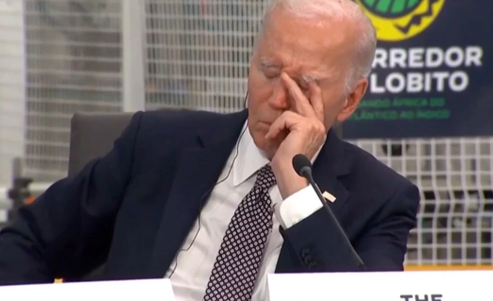The Albanese government’s recent policy shifts concerning Israel have left many within the Australian Jewish community deeply concerned about the direction of Australian foreign policy. Under the Albanese administration, Australia has distanced itself from its longstanding, bipartisan support for Israel, potentially endangering Australia’s relationship with one of its most important allies in the Middle East. These decisions have been detrimental not only to Israel but also to the Australian Jewish community, who are now faced with increasing levels of discrimination and animosity as a result of these policies.
Penny Wong’s recent vote at the UN to recognise Palestinian sovereignty represents a dramatic shift in Australia’s foreign policy, marking a break from its support for Israel under previous Labor governments. This decision, which aligns Australia with the broader international majority, is seen as detrimental to the Jewish community in Australia. By backing Palestinian sovereignty over contested territories, the Albanese government not only risks alienating its Jewish constituents but also strengthens the narrative of delegitimizing Israel’s right to exist, potentially fueling antisemitism and divisiveness within Australian society.
Another key decision that has drawn widespread criticism was the Albanese government’s move to reverse Australia’s recognition of West Jerusalem as the capital of Israel, a position taken by the previous Morrison government. This shift away from supporting Israel’s sovereignty over its capital emboldens critics of Israel and ignores the historical and cultural connections between the Jewish people and Jerusalem. The decision was widely regarded as a political concession to anti-Israel factions within the international community, undermining Israel’s right to exist within secure and recognised borders.
This policy change also aligns with the broader trend of anti-Israel rhetoric gaining traction in Australian politics. Under Albanese, the Labor government has aligned itself more closely with the United Nations’ hostile resolutions against Israel. Such actions, while presented as a desire for peace and a two-state solution, ultimately serve to delegitimize the Jewish state and provide cover for the increasing normalization of antisemitism. The Australian Jewish community, already facing a rise in hate speech and incidents of antisemitic violence, now finds itself caught in the crossfire of these diplomatic shifts.
The shift in policy is particularly damaging as it sends a signal that Israel’s right to defend itself is less important than appeasing political and diplomatic pressures from nations with authoritarian regimes that oppose Israel’s existence. As Israel faces existential threats from groups like Hamas and Hezbollah, Australian support should be unwavering in its commitment to Israel’s security and right to self-determination. The Albanese government’s actions undermine this solidarity, offering moral support to those who seek to delegitimize the Jewish state.
Moreover, the Australian Jewish community, which has always been a vibrant and integral part of Australian society, is now witnessing an uptick in anti-Israel protests, often accompanied by antisemitic rhetoric. These protests have not only endangered the safety of Jewish Australians but have also led to increased social divisions. As antisemitism continues to rise globally, Australian Jews are left to wonder if their government still has their best interests at heart.
Josh Burns, the Labor Member of Parliament for the seat of Macnamara in Victoria, has faced criticism from parts of the Jewish community over his representation, particularly in light of his responses to recent conflicts involving Israel. While Burns has publicly denounced anti-Semitic acts, including a vandalism incident at his office, he has been criticized for not being as vocal or strong in his condemnation of anti-Israel rhetoric, especially in the context of the broader political climate. His remarks during the ongoing Israel-Palestine tensions have raised concerns among Jewish constituents about his ability to effectively represent their interests.
Critics argue that while he speaks out against anti-Semitic acts, his overall stance on Israel has been perceived as insufficiently supportive, particularly given the rise of anti-Israel sentiment in Australia. This has left some Jewish constituents feeling that their concerns are not adequately addressed in the current political climate, where a more robust and unequivocal defense of Israel may be needed.
In conclusion, the policies of the Albanese government regarding Israel are not just a blow to Australia’s international standing but also a serious disservice to the Australian Jewish community. By undermining Israel’s right to exist and caving to anti-Israel pressures, the Albanese government risks deepening divisions within Australian society and empowering those who seek to undermine the safety and security of both Israel and its people. Australia’s commitment to democracy, freedom, and human rights should compel the government to stand firmly with Israel and the Jewish community, not against them.






8 thoughts on “The detrimental impact of the Albanese Government’s policies on Israel and the Australian Jewish Community”
A most excellent piece, thanks so much Adam.
Thanks, Lizzie. Please feel free to share the article with anyone in your network.
Plenty Wrong has gone against her own advisors. Just shameful. Time to rid ourselves of Labor, Teals and Greens at the next election. All just as filthy as each other.
Couldn’t agree more, Shane.
And the outrageous treatment of Israel by this government continues to worsen with the news today of Australia refusing a visitors visa to a well respected representative of the Israeli government in Ayelet Shaked. This government’s stain of shame in foreign policy just gets bigger by the day.
Thanks for your comment, Tamir. I could not agree with you more. How the Australian Government treats their only true democratic ally in the Middle East is embarassing to say the least.
The Labor Party is more authoritarian than the LNP I have discovered. It is their only way to bring unity within the party. I believe this is because the power brokers do not believe that truth is absolute, so they are left with the alternative option to pursue their current philosophical agenda. I noticed this with my former Labor MP. Refusing to debate issues, he was a puppet to the party authorities. This needs to be brought to the attention of voters when they go to elect their representative.
Israel is a stumbling block to modern philosophies, eg the belief that we are glorified apes (evolution) and that religion is part of the evolutionary process. This clashes with the biblical narrative, especially the part of where there is a coming judgement.
We have been caught up in the illusion that we can create a society of perfect inclusion, where everyone is entitled to be happy. Since happiness is situational, this is impossible to achieve.
Wise words, John. Thanks for sharing.